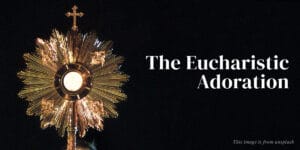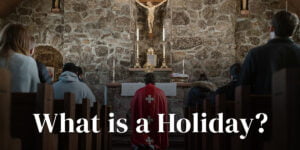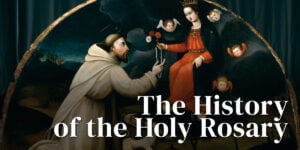What is the Sacred Tradition?
The Sacred Tradition or the Oral Tradition is the teaching of our Lord Jesus Christ, the Apostles by the word of mouth. Some of the teachings of our Lord and the Apostles are not written in the Sacred Scriptures. And some of these teachings are taught by the apostles to their disciples, the Church Fathers.
What is the Sacred Scripture?
The Sacred Scriptures are the writings of the followers of one True God, from the time of Moses to the Apostles of our Lord Jesus Christ. In short, it’s the Holy Bible. The bible was compiled under the Pope Saint Damasus I and was translated to Latin by Saint Jerome that resulted into the Vulgate.
What are the examples of the Sacred Tradition?
The examples of the Sacred Traditions are the Holy Mass, the Apostolic Succession and Papacy, The Holy Sacraments, the Sacramentals, Intercession of the Blessed Virgin Mary, the Saints and the Angels and the Purgatory.
Does the Sacred Tradition match to Sacred Scriptures?
Yes. Let me give some of the examples of the Sacred Tradition that matches the Sacred Scriptures:
- The Catholic Church – Foretold in the Old Testament such as Isaiah 2:2-3 and Micah 4:1-2 until its foundation in Matthew 16:18-19 in the New Testament.
- Intercession – On the book of Tobias 12:12, the Angel present prayers to God. Then on Luke 16:27-31 where there’s a intercession by departed man for his brothers. Saint Paul asks for Intercessory prayers on his Letters to the Romans (Romans 15:30-32) and to the Ephesians (Ephesians 6:18-20). And from the Book of Revelation where the Angel presents the prayers of the Saints to God (Revelation 8:3-4).
- Purgatory – The controversial place which the protestants denied to believe because its name was never be found in the Bible. Yes, the name does not exist but the description and its functionality described in the Bible, like in Matthew 5:26 and Luke 12:59 where it says the soul will not be released until all debts are paid, which the debts are the sins. Then in Saint Paul’s letter to the Corinthians stated that a man will be saved but through fire (1 Corinthians 3:15), and the fire that Saint Paul stated is the fire in Purgatory. In Revelation 21:27, stated that “Nothing unclean shall enter Heaven”, which means a man who lives on earth faithfully to God but still has a stain of sin like the venial sins, must go through purgatory to be cleansed.
Even though these traditions are not written, we must remember that not all teachings of our Lord or the Apostles are written in the sacred scriptures, and they teach them by words just like what Saint Paul the Apostle said “Brethren, stand fast; and hold the traditions which you have learned, whether by word, or by our epistle”. Also, we must follow the traditional teaching of the Church with the help of the Holy Spirit.
Source: My Catholic Source





